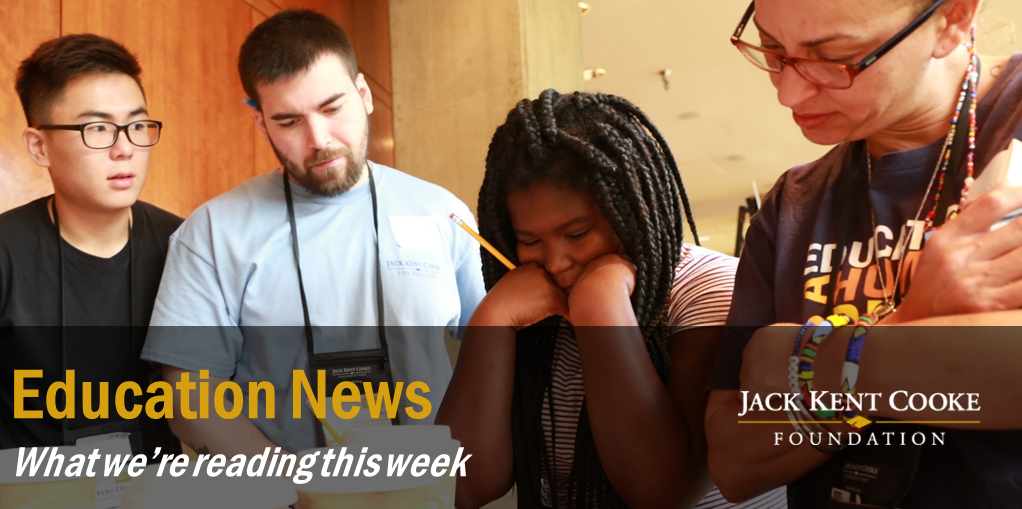October 9: Education News We're Reading This Week

October 9, 2015—Our weekly roundup of the biggest stories you might have missed!
Elementary & Secondary Education:
- Even as he prepares to leave his position, Secretary of Education Arne Duncan continues intiating new projects. The Atlantic delves into his recent remarks on race and inequality in America’s education system.
- In a blog for Education Week, Jim Shelton describes successful interventions and research findings for combating the effects of poverty on educational achievement.
Higher Education:
- On Wednesday, the House Committee on Ways and Means Subcommittee on Oversight examined the extent to which tax policies may be contributing to the climbing cost of higher education. NASFAA shares a summary of the hearing.
- Diverse speaks with leaders at urban colleges to profile how they are rethinking student support with new resources and data. Many of their students often face nontraditional challenges including working, raising families, living off campus, and being first-generation students.
- Thomas J. Botzman, president of Misericordia University, describes the various Pell grant proposals currently circulating Congress in University Business. Botzman is concerned that these changes to the program will limit affordable college access.
- In The Hechinger Report, Stephen Burd urges policymakers to consider a proposal to overhaul and grow the Supplemental Educational Opportunity Grants (SEOG). Among the changes would be a requirement for receiving insitutions to allocate its funding toward reducing the debt burden of low-income students.
- Kevin Carey writes in The New York Times that student debt is even more troubling than you might think: “The loan crisis hits hardest at colleges enrolling large numbers of students from low-income backgrounds,” and historically black institutions suffer a staggering majority of colleges and universities with the highest nonrepayment rates.
- Inside Higher Ed explains new research demonstrating that “recent high school graduates who started at four-year institutions were almost 50 percentage points likelier than those who started at two-year colleges to have earned a bachelor’s degree within six years.” Their article mentions credit transfer policies and relocating as some of the reasons talented students who start their degrees at community college aren’t able to move forward to complete a bachelor’s degree.
- A new report from CLASP cautions policymakers not to use post-graduation earnings data to create new accountability measures without considering differences in programs, economic regions, and other characteristics.
Cooke Foundation Highlights:
- Cooke Young Scholar Mya Poluchov has been selected to represent her high school at the 2016 Hugh O’Brian Leadership Conference in May, reports The Messenger.
- The Loudoun Symphony Orchestra announces its 25th anniversary performance schedule in The Northern Va Times. Last year, the symphony received a $35,000 Good Neighbor Grant from the Cooke Foundation that will be used to launch music instruction and performance opportunities for its youth orchestra.
- Our Good Neighbor Grants program is accepting proposals from nonprofit organizations in the Northern Virginia, Washington, D.C., and Maryland areas that are helping students with significant financial need reach their full potential through education. Grant amounts will be awarded between $10,000 – $35,000. Learn more about our eligibility requirements and apply now through December 3, 2015.
- The Cooke College Scholarship application is open! We’re looking for talented high school seniors with financial need to apply. Cooke Scholars receive up to $40,000 for each year – plus college planning support, ongoing advising, and the opportunities for study abroad and internship stipends. They also become eligible for a $50,000 per year Cooke Graduate Scholarship. Apply now through November 3, 2015.